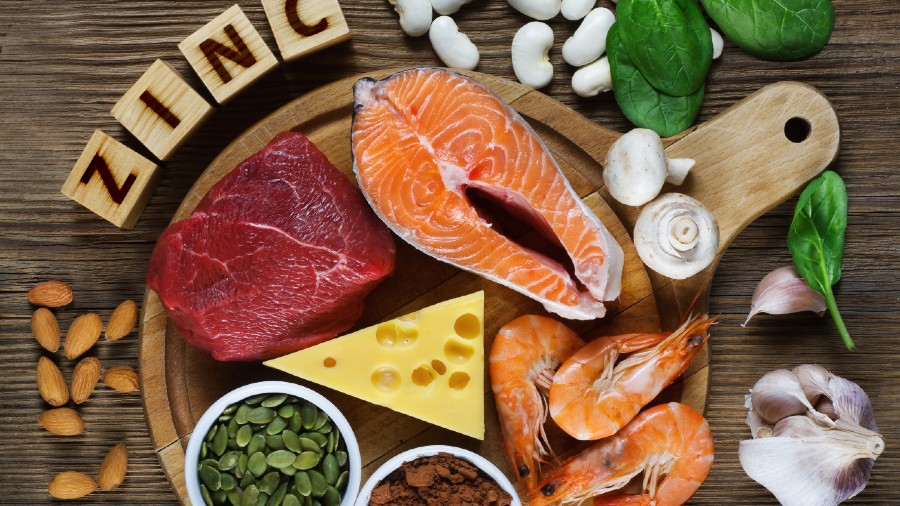There has been a sudden interest in zinc, a heavy metal found in trace amounts in the human body. This is because it apparently has a partially protective role in preventing and reducing the severity of coronavirus infections. People testing positive for the virus are being administered supplements of zinc and Vitamin C.
Zinc is a metal mined from the soil. The adult human body contains approximately two grams of zinc, 60 per cent of which is in the bones and muscles and the remaining in the rest of the body. Zinc cannot be made or stored in the body. It has to be constantly obtained from external sources.
Zinc is essential for the efficient functionin g of gene DNA, enzyme reactions, wound healing and the immune system. In children, it is essential for proper linear growth and development. It is needed for the enzymes of the body to function. The requirement of zinc is 8 milligrams/day in women and 11 mg/day in men. The maximum tolerated amount is 40 mg/day.
Zinc is found in shellfish, beef, pork, mutton, chicken, eggs and fish. Vegetarians can obtain it from chickpeas, beans, peas, mushrooms and nuts. Vegetables, cereals like rice and wheat contain phytates. This binds zinc in the diet. It then forms a macromolecule (zinc phytate) that cannot be absorbed. Vegetarians are, therefore, more prone to zinc deficiency. Also, in low-income countries, the diet is deficient in zinc-rich foods. Cereals there are also not fortified with zinc.
Symptoms of mild zinc deficiency include diarrhoea, frequent viral infections, brittle hair, dry skin, increased wound healing time, decreased appetite, mood disturbances and relative infertility. The hair and skin have a typical look. The person has a constant runny nose with viral upper respiratory infections most of the time.
Children are often malnourished even when they are from well-to-do homes. Their diets are often faulty, unbalanced and zinc deficient. They eat high-calorie, nutritionally valueless processed snacks. (Dark chocolate is one of the few snacks that contains zinc.)
Children are prone to developing diarrhoea too. Bacterial diarrhoea responds to antibiotics, but viral diarrhoea, which is more common, and food poisoning do not.
Diarrhoea in children improves rapidly if 20 mg/day of zinc supplements for at least 10-14 days are given. The number of recurrent diarrhoeal episodes for the next 2-3 months is also reduced after zinc administration. This is because zinc is essential for normal intestinal transport and absorption of water and electrolytes.
Dietary deficiency of zinc is especially common in low-income countries because of a low dietary intake of zinc-rich foods (mainly foods of animal origin) or inadequate absorption caused by its binding to dietary fibre and phytates found in cereals, nuts and legumes.
Ingesting excess zinc does not increase the beneficial effects. On the contrary, it produces side effects like loss of appetite, nausea, vomiting and abdominal cramps. It also interferes with the absorption of essential elements like iron and copper. This is because the same sites on the intestine are responsible for the absorption of all three elements, so competition for binding sites sets in.
A combination of Vitamin C and zinc is being advocated as a supplement for the prevention of Covid infection. It is also being advised for people who have tested positive for the coronavirus. Both compounds have some proven antiviral activity and do increase immunity. There is no harm in taking it, but it should not be more than 75mg of Vitamin C a day and 40mg of zinc. You can probably get the same benefits from eating a handful of a mixture of almonds and cashew nuts (10 nuts totally) and drinking a glass of orange or lime juice.
Supplements of zinc or Vitamin C are not a substitute for wearing a mask or taking the vaccination.
The writer is a paediatrician with a family practice at Vellore and the author of Staying Healthy in Modern India. If you have any questions on health issues, please write to yourhealthgm@yahoo.co.in











